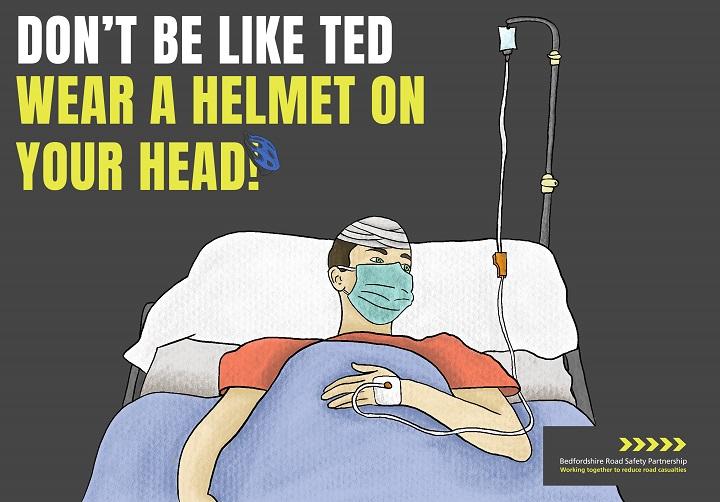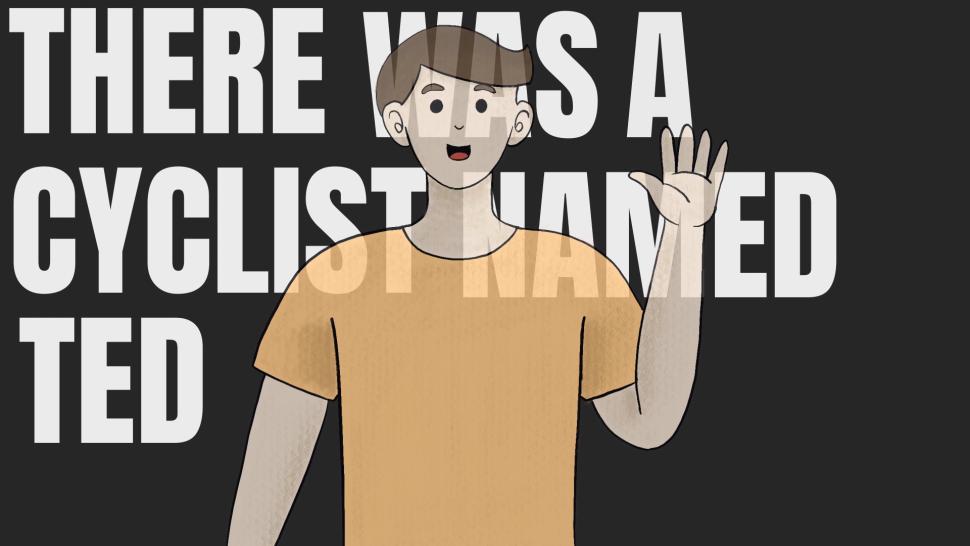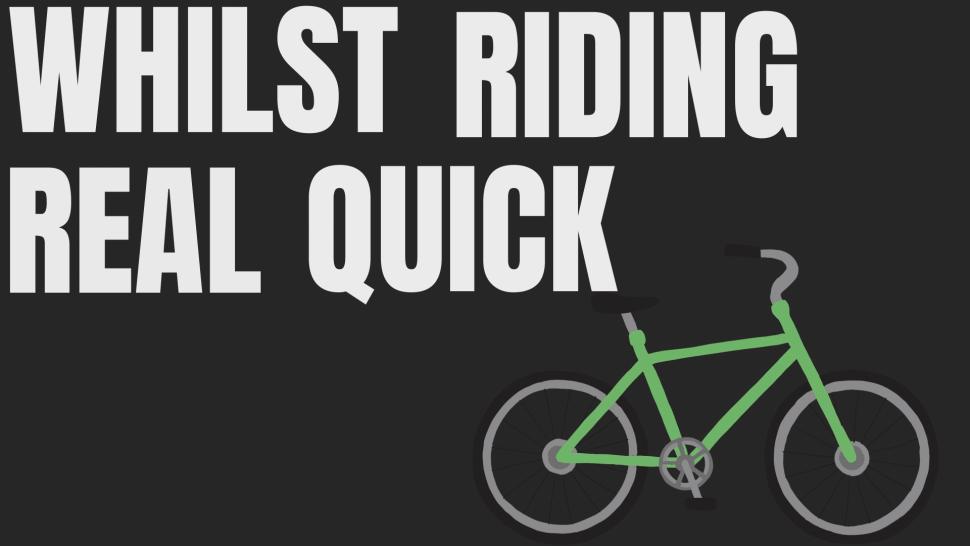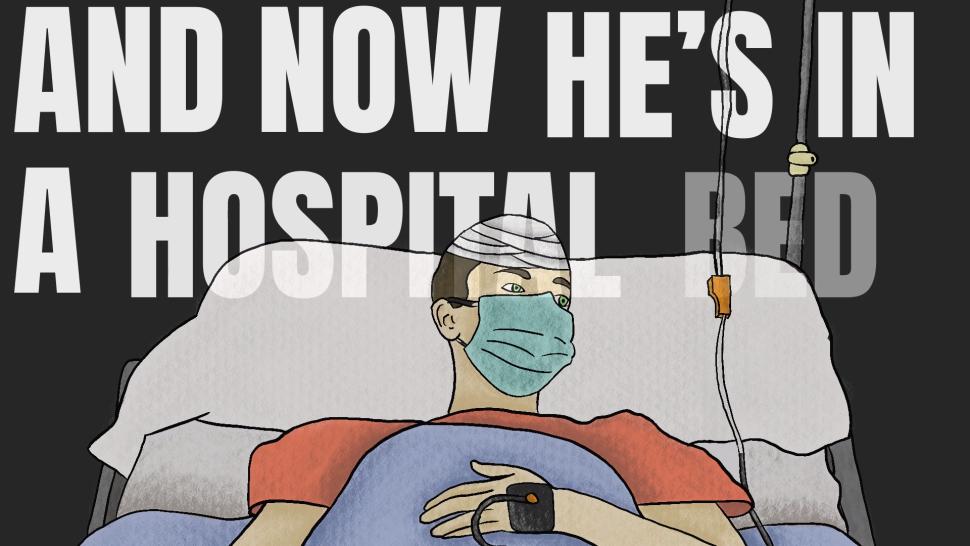- News
- Reviews
- Bikes
- Accessories
- Accessories - misc
- Computer mounts
- Bags
- Bar ends
- Bike bags & cases
- Bottle cages
- Bottles
- Cameras
- Car racks
- Child seats
- Computers
- Glasses
- GPS units
- Helmets
- Lights - front
- Lights - rear
- Lights - sets
- Locks
- Mirrors
- Mudguards
- Racks
- Pumps & CO2 inflators
- Puncture kits
- Reflectives
- Smart watches
- Stands and racks
- Trailers
- Clothing
- Components
- Bar tape & grips
- Bottom brackets
- Brake & gear cables
- Brake & STI levers
- Brake pads & spares
- Brakes
- Cassettes & freewheels
- Chains
- Chainsets & chainrings
- Derailleurs - front
- Derailleurs - rear
- Forks
- Gear levers & shifters
- Groupsets
- Handlebars & extensions
- Headsets
- Hubs
- Inner tubes
- Pedals
- Quick releases & skewers
- Saddles
- Seatposts
- Stems
- Wheels
- Tyres
- Health, fitness and nutrition
- Tools and workshop
- Miscellaneous
- Tubeless valves
- Buyers Guides
- Features
- Forum
- Recommends
- Podcast
news
 Helmet campaign (Bedfordshire Road Safety Partnership)
Helmet campaign (Bedfordshire Road Safety Partnership)Road safety organisation accused of "victim-blaming" over cycling helmet campaign
A road safety organisation has come under fire for its latest campaign, which urges cyclists to wear a helmet and has been criticised for "victim-blaming" and failing to tackle road danger "at source".
Bedfordshire Road Safety Partnership — a group "working together to reduce road casualties" and is made up of representatives from the council, police, fire and rescue and the Bedfordshire Police and Crime Commissioner — launched the campaign, which has since been shared on Road Safety GB's website, a national road safety organisation.
In the video, which can be viewed on the Bedfordshire group's website, viewers are shown an animated story of a cyclist called Ted, who didn't wear a helmet on his head. "Whilst riding real quick, he hit a big stick, and now he's in a hospital bed," the rhyme ends.
The campaign was also shared on Road Safety GB's website, the national road safety organisation that is run in association with THINK! and representatives from groups across the UK, including local government road safety teams.
Road Safety GB said the campaign aims to make wearing a helmet "the norm", drawing on comparison with Australia where helmet use is mandatory and cyclists breaking the rules can be fined.
It was also revealed that all schools in Bedfordshire have been sent the resources to add to their social media accounts and pass on to parents in newsletters.
Promoting the three-week campaign, a spokesperson told Road Safety GB: "We are trying to make wearing a helmet the norm, as it is in Australia. To do so, we are targeting all age groups to change their habits – as has happened with the wearing of seatbelts over the years."
The campaign was shared on social media by one Twitter (X) user simply saying, "Oh dear", while another joked about the comparison to Australia a country "famous for so much cycling".
> Why is Dan Walker's claim that a bike helmet saved his life so controversial?
Another reply shared a link to an Australian Institute of Health and Welfare report which showed one in five people injured on Australian roads and paths is a cyclist while the rate of hospitalisation for cyclists increased by 1.5 per cent per year over the 17-year period of the report, 4.4 per cent year-on-year in the final six years of the report.
"If this approach works why do the stats show cycling is getting more dangerous in Australia? Stop victim-blaming and tackle road danger at source," they said. "If you really want to make the roads safer for people on bikes campaign for proper infrastructure. Helmets and personal protective equipment are not and never will be the answer."
The reply also tagged England's cycling and walking commissioner Chris Boardman, who famously said back in 2014 that helmets are "not even in top 10 of things that keep cycling safe".
In June, an Irish children's hospital consultant spoke out making the case for cyclists to be legally required to wear a helmet, arguing accident and emergency units see a spike in crash-related injuries during the summer months.
The UK government has repeatedly shut down occasional calls for cyclists to be required to wear a helmet, most recently in December of last year when a minister of state from the Department of Transport said the matter had been considered "at length" during the cycling and walking safety review in 2018.
They said: "The safety benefits of mandating cycle helmets for cyclists are likely to be outweighed by the fact that this would put some people off cycling, thereby reducing the wider health and environmental benefits. The Department recommends that cyclists should wear helmets, as set out in the Highway Code, but has no intention to make this a legal requirement."
Dan is the road.cc news editor and joined in 2020 having previously written about nearly every other sport under the sun for the Express, and the weird and wonderful world of non-league football for The Non-League Paper. Dan has been at road.cc for four years and mainly writes news and tech articles as well as the occasional feature. He has hopefully kept you entertained on the live blog too.
Never fast enough to take things on the bike too seriously, when he's not working you'll find him exploring the south of England by two wheels at a leisurely weekend pace, or enjoying his favourite Scottish roads when visiting family. Sometimes he'll even load up the bags and ride up the whole way, he's a bit strange like that.
Latest Comments
- Oldfatgit 2 min 19 sec ago
For clarity... are we saying that vehicular cycling is *good* or *bad*?...
- chrisonabike 55 min 14 sec ago
What about all the computer misuse? Stop with the downloading already!
- brooksby 1 hour 18 min ago
"Professional Triangle tire Punctured tire Nail for Spike Anti-Theft car Safety Emergency car" Sorry, but WHAT??
- Legin 1 hour 58 min ago
What a pair of fine looking gammons celebrating it's removal....
- HollisJ 3 hours 11 min ago
Have you seen the size of Micras these days? Now, it it were a Micra from the 80s...
- thax1 4 hours 20 min ago
Not quite long enough for him to have a think about what he'd like to say on stage when collecting the award apparently. Which you have to love him...
- LeisureRider 4 hours 24 min ago
As an amply-figured female leisure cyclist, the comfort of a slightly downward angled saddle has long been known for avoidance of mincing one's...
- stonojnr 5 hours 1 min ago
Certainly membership trippled in numbers between 2012 to 2019.i think it's been in decline since so theydon't tend to shout about the numbers...
- OnYerBike 5 hours 44 min ago
The Sora groupset seems very expensive for what it is. Even without going down the AliExpress route, you can get 11spd 105 for £360 (https://www...




Add new comment
77 comments
Speculation by me without numbers but I'd take a bet that both of those had a much greater potential for serious harm reduction overall, plus (according to the ads...) the first partially but certainly phone use is a threat to others...
Also I haven't checked for a while but how's mandatory helmets doing in making motorists more sympathetic toward cyclists in Australia? (I actually don't know ... eburtthebike probably does though... or grog).
Anyhoo I suspect the best point to go for that kind of suggestion would be perhaps where the Dutch are at now. Cycling is reasonably established as a normal transport mode, they're getting to the point where just falling off is the most frequent accident type (the event most current cycle helmets are designed for) AND they seem to have a more robust data-gathering and evaluating approach to road safety compared to the UK. Albeit apparently there's been a recent increase in bad outcomes from collisions with motor vehicles. (They've not declared a truce...)
My point is that a road safety organisation should be focussing on road safety and bike helmets are way down the list of what actually works. They could be running a campaign to teach drivers about leaving enough space around vulnerable road users, or not using mobile phones, or not speeding. They could be campaigning for effective infrastructure or driver re-testing or law changes to allow cyclists to use traffic lights more flexibly. But no, it's just bike helmets.
Mandatory helmets have been shown to reduce the number of cyclists on the roads and thus tends to make cycling more dangerous!
I don't think you understand the basics of road safety.
Quite a wild conclusion you have jumped to there. Will you admit that the driver caused the collision and that not wearing a helmet does not lead to having a collision?
Nope. They are known as Road Traffic Collisions. Have you ever seen Hot Fuzz?
They are still accidents whether you call them collisions incidents or anything else we don't mean to have them.
So what if it was the drivers fault. The helmet didn't make them do it. It merely helped me survive it, that is the very point.
You really are being willfully naughty about this. If you saw the collision and the helmet and how I ended up you would I guarantee say you are bloomin' lucky to be alive.
The helmet I was wearing allowed me to have this conversation. The consultant's observation was that I should thank the helmet for saving my life or my life as I know it.
You need to realize that at some point you will have an collision with something. Your fault their fault it doesn't matter. When it happens if you are better prepared and equipped you have a better chance of walking away.
No, they are collisions - that's the only description we can be certain about. A driver may not mean to hit you, but by not paying sufficient attention they did so nonetheless. That's a decision on their part, not an accident.
I'm not going to get into a debate about whether the helmet saved your life in this instance. I also wear a helmet when cycling, but I don't think that it should be front and centre of a road safety campaign, which is what is actually being debated here.
Campaigns for road safety should primarily focus on decreasing collisions, not mitigating their effects. By making cycling out to be inherently dangerous (nearly killed by a big stick? Seriously?) this campaign helps to put people off cycling. That does more harm to people's health, as the benefits of cycling greatly outweigh the risks.
I'm not saying that you shouldn't wear a helmet. I'm saying that campaigns should not be focused on helmet wearing as they are counter productive and take away space from more effective campaigns.
Duplicate post
Duplicate post
Exactly this.
Imagine if your car flipped onto its roof every time you hit a stick. Seatbelts, airbags and SIPs wouldn't encourage you to drive!
Seriously who is put off from doing something by something that makes it less likely that you hurt yourself if you have an accident. If seatbelts airbags etc wouldn't encourage you to drive then companies would not promote them but Volvo virtually based their entire marketing campaign around safety for decades.
And yet Volvo was only popular amongst elderly drivers are safety conscious drivers. As I said to Holding On. All the modern features on today's vehicles encourage irresponsible driving.
Ah - I think my comment has been taken to mean I believe helmets discourage people from cycling. Not my experience at all. I happily wear a helmet - it doesn't bother me and if there is a chance it will prevent some damage, why wouldn't I wear it? At the same time, if someone else chooses not to wear a helmet - I'm not going to lose any sleep over it.
My comment was to point out that in a world where we are trying (supposedly) to encourage people to cycle, we are also in a world where we are telling people that a stick could put them in hospital.
If we reduce that to absurd levels and put it in the context of drivists, I was trying to point out that most drivers would be put off driving if they were told a stick would flip their car - even if they were also told a "helmet" (or in their case seatbelts, airbags and SIPs) would mean they didn't end up in hospital.
As for the safety features in cars - yes, I definitely agree. It is a cause of irresponsible driving. If you made cars so they exploded at the least touch, there would be a lot more cautious drivers out there!
Well, quite. As if there wasn't already enough to think about.
It's great, Steve, that you've decided to come for a bike ride. Now, have you got everything: gloves, toolbag, pump, gilet, money, charged your lights, charged your 'phone, hang on, mate you need your helmet, your helmet cam, is it charged up and got lots of mem - oh, he's buggered off, damn me he's backing his car out.
Except none of that is compulsory...
It's great, Steve, that you've decided to come for a daytime* bike ride. Now, have you got your bike? Excellent - lets go.
I am against helmets being compulsory. I am against a campaign that makes cycling look like a stick could endanger your life. I would prefer time and money spent trying to push helmets on cyclists was spent trying to encourage drivists to see us as vulnerable humans.
I am a cyclist that chooses to wear a helmet because it might offer some protection in some situations and I don't believe people look at me and think "I'm not going to cycle because they are wearing a helmet"
*Obviously at night Steve will need to bring lights
Again, this needs to be separated into two strands:
1) The effect on people already doing the activity; and
2) The effect on people not currently doing the activity.
I'm not going to be put off by a campaign for helmet use in cycling, because I already cycle.
My wife, on the other hand, already fears cycling because of the perceived danger and campaigns which highlight that danger will only put her off more.
The Volvo example is not useful, because that was aimed at the former group. Their advertising campaign aimed to get existing drivers to switch to their cars.
I'm pretty convinced that many motorists drive more irresponsibly due to these features. I'm sure that they would be more cautious behind the wheel of a 1970's mini.
I'm pretty convinced that many motorists drive more irresponsibly due to these features. I'm sure that they would be more cautious behind the wheel of a 1970's mini.
Sorry. They are collisions or crashes. Investigations consistently identify speed and inattentiveness as the cause of them. I’ve been caught up in a number of crashes over the years. One of them was my fault. I was distracted by the radio and shunted the car in front when I panicked and braked harshly. Lesson learnt. Radio stays off. All the others were down to the other drivers not paying attention. The only incident that could be described as an accident was having a blowout on the motorway. Tyres were fine at start of journey and may have developed a slow puncture resulting in the crash.
An accident is a tree blowing over or a wall collapsing or something like that. Something that is totally out of your hands and control.
When I drive I’m observing a mile up the road on motorways and a good 100yards on urban roads as well as directly ahead of me. I’m watching pavements and extra cautious exiting junctions. Problematic junctions I often turn left and detour rather than right.
100% of crashes can be avoided through being more attentive.
Until you are not attentive or the other guy isn't. I am not saying they are without fault. They happen all the time, look around nobody means to have them. They happen precisely because of some of the reasons you say and others. You will never get everyone to be perfect. They may have all sorts of reasons why they are distracted. Doesn't make it right but neither is it their intention to crash. Neither is it a decision that they consciously make to take more risks because of visiting Mummy in the hospital who is dying and it is stressing them out. They are distracted.
It's choices all the way up. Your choice to make that journey when you've got the kids in the car, or are overwrought, or are tired, or it's night and the weather's awful. Your choice to drive at that speed. Your choice to buy the car in the first place.
Of course that choice is encouraged by the choices of our manufacturers, our road designers, our politicians local and national etc. No one is fully culpable but everyone has made choices to facilitate mass motoring. And we all help this being perceived as a very necessary, yet fairly trivial and mundate activity. That we can (mostly) do in a way which perhaps we shouldn't, when we shouldn't, and that all of us do perhaps more than we should.
A claim made thousands of times, but the death rate of cyclists doesn't fall as helmet wearing rates increase, so the likelihood of your "helmet saved my life" story being true is as close to zero as makes no difference.
You think a helmet makes no difference. Well you are entitled to your opinion. I will keep my fingers crossed that you never have the same collision. Personally I think suggesting people do not wear a helmet because it is not necessary, is a little crass.
Nobody is suggesting that you do not wear a helmet if you want to but we question why you wouldn't want to wear one when partaking in equally risky activites. We just don't want you trying to force others to wear one when their effectiveness is unproven. Personally I find then hot, noisy and uncomfortable and feel that I am more aware of my surroundings without one.
Your anecdote about your own experience with a cycling collision is interesting because the eps is supposed to deform in order to cushion your head and reduce the forces on it. By breaking it was probably unable to do this effectively and may have been faulty, have you considered suing the manufacturer for their contribution to your injuries?
So the helmet cracked instead of deforming and reducing the rate of deceleration of your head like it was supposed to...
...thereby failing to protect your brain (it might have helped with scrapes).
You need a physics lesson
There once was a cyclist named Mandy,
Who was plowed down by a speeding Audi,
The driver got off Scot-free,
As Mandy's children mourned she
Who died and was blamed so unfairly.
She wore something bright,
Had two working lights,
With polystyrene MIPS fitted tight!
Alas! No helmet would change
The two-ton impact by Shane,
Who said,
'honest, Guv, I ain't to blame.'
This is not victim shaming it is trying to persuade cyclists to do something to protect themselves instead of expecting everybody else to do it for them
So, does this molly coddling of cyclists just mainly consist of not driving into us?
I dunno, that seems like a reasonable requirement to me.
By driving safely around vulnerable road users? Or is that too much to ask?
Again the issue of road safety by a "safety" group has scored an own goal! Till drivers are retested and re-evaluated every 5-10 years. I've several friends who drive for a living (they still two wheel at the weekend, haha) and there employers have them retested as part of standard H&S. So it's more of a case the government doesn't want to make an enemy of drivers in general, just look at the police support for drivers whilst uniformed aggression to riders is climbing..... Though I will remind EVERYONE here driving is a privilege not a right something the courts need to be reminded of!.....Any one up for mass car tyre valve removal? (Kidding 😉)
I completely agree regarding re-testing regularly. Having driven mobile plant, yes it's dangerous machinery but in an extremely controlled environment. We do one test in a 2T death machine, likely in our teens and go, "there we are, I don't doubt you'll be fine even with all the regulation changes and life circumstances that will influence how you fling this metal box about in the open"
I'm surprised the gov hasn't thought, "we'll see an increased income her with re-testing" 🤷♂️
Pages